Australia Disbands National Water Commission
The water advisory group is a casualty of sharp cuts to the Commonwealth’s budget.
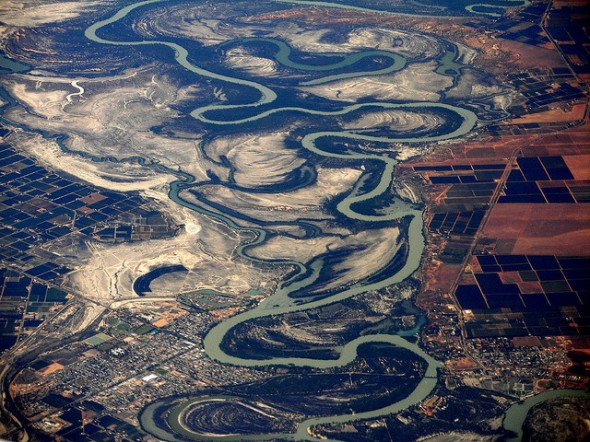
By Codi Kozacek
Circle of Blue
The commission that advises Australia’s government on water issues will cease to exist after December 2014, saving the Commonwealth government approximately $US 19.5 million over the next four years as part of a broad move by a new prime minister to cut spending.
The National Water Commission, created 10 years ago to oversee the implementation of national water policy reforms and a controversial ecosystem restoration plan for Australia’s largest river basin, was axed in the national budget released Tuesday.
The budget is the first to be presented by the administration of Prime Minister Tony Abbott, a member of the Liberal Party, which has pledged to return Australia to an era of budget surpluses.
Seventy other agencies were either cut completely or reduced and merged into larger departments. The Australian Renewable Energy Agency was abolished while the national science agency, known as CSIRO, lost $US 104.1 million from its budget over the next four years.
Funding for the Murray Darling Basin Authority, which coordinates the plan for restoring the ailing river basin, is unchanged, but the government is cutting $US 157 million over four years from the program that purchases water from farmers and keeps the flows in rivers, according to the Australian Broadcasting Corporation.
–Mike Young
Harvard University
The National Water Commission has been the primary body responsible for assessing Australia’s progress on water policy and holding state and local governments accountable. While water management has traditionally fallen to state governments, the national government has played an increasingly important role since the early 2000s when Australia was crippled by a severe drought.
“Taking the eye off water is foolhardy,” Mike Young, Gough Whitlam and Malcolm Fraser Chair in Australian Studies at Harvard University, wrote in e-mail to Circle of Blue. “National oversight of water is critical to the future of Australia.”
Though the government says it will reallocate the Commission’s responsibilities to other agencies, there is concern that important qualities that have allowed the Commission to be effective could be lost.
“The key question will be, are those agencies adequately at arms-length from the government of the day?” Jonathan La Nauze, the healthy ecosystems program manager for the Australian Conservation Foundation, told Circle of Blue. “If it were rolled into the Commonwealth Environment Department or other Commonwealth departments that are directly accountable to the minister, that isn’t conducive to an independent audit function. So the level of independence is one risk. Secondly, it’s a matter of expertise. At the moment, there are no equivalent bodies at the national level that have the expertise in water management and reform that the National Water Commission has.”
Australia’s Productivity Commission, which focuses on economic matters, is a primary candidate for taking on the Water Commission’s role, and could be a good fit if it was given additional resources and was required to hire special commissioners and staff, La Nauze added.
“The Commission has endeavored to ensure that our core functions are transferred to the most appropriate agencies,” Lynne Griffiths, Director of Communication and Parliamentary Liaison for the National Water Commission, wrote to Circle of Blue in an e-mail. “At this point, final agreement on all transfers is yet to be reached. We will post updated information on our website as soon as it becomes available. At this stage it is likely that only three to four staff may be transferred to other agencies.”
Commission Will Finish Triennial Assessment
While it remains active in 2014, the Water Commission will focus on completing its Triennial Assessment of the progress made by Commonwealth, state and local governments to implement the National Water Initiative. The assessment is scheduled to be released in October. Griffiths also confirmed that the following projects will be completed in 2014:
- Water markets reports: A series of projects that will produce an annual markets report, together with reports on current market issues, trends and drivers that influence trade and emerging markets.
- Environmental water management review: An update on identified areas for improvement in jurisdictions’ planning, implementation, monitoring and evaluation, and governance arrangements.
- Urban futures: Will support a new agenda for urban water reform through targeted engagement with key stakeholder groups.
- Water planning report card: An update to the 2011 baseline assessment, examining the extent of change to water planning arrangements across Australia.
- Murray Darling Basin national partnership assessment: Will assess the performance of Murray Darling Basin states in implementing agreed milestones under the National Partnership on Implementing Water Reform in the Murray–Darling Basin.
- Stocktake of Indigenous involvement in water planning: Will describe the status and progress of arrangements since the last stocktake undertaken as a contribution to the 2011 biennial assessment.
“We are working to ensure that the Commission’s dedicated and professional staff obtain alternative employment opportunities that utilize their expertise and experience,” Griffiths wrote. “The Commission will continue to consult closely with our stakeholders in coming months as the Commission finalizes and delivers our final report on national water reform. Ongoing commitment from all our partners – governments, industries and communities – will be critical to maintain water reform momentum, prevent backsliding and uphold transparent, independent and expert reporting.”
–Jonathan La Nauze
Australian Conservation Foundation
Yet even after the Water Commission is dissolved, the National Water Initiative will remain in effect. The Initiative was passed in 2004 and is meant to increase Australia’s water security by establishing planning and management mechanisms for both ground and surface water resources. However, there is significant unfinished business in regard to fully implementing and expanding the National Water Initiative, La Nauze said, citing two states that have not yet instituted robust water planning programs. In addition, there is room for the initiative to be expanded.
“[The initiative] was a robust step, but some things were too hard, such as really looking hard at climate change mitigation and water management within that, or the best way to manage competing demands for water from our resources sector,” he said.
Commonwealth Leaders Aim to Deregulate and Streamline Government Programs
No specific reason was given for the closure of the National Water Commission other than the overall budget goals of streamlining programs and regulations.
“The total savings are around $20 million, which in the scheme of the federal budget is clearly not a primary motivator,” La Nauze said. “That scale of saving is not relevant. So I would hope that it’s not actually a sign of a backing away from the commitment to strong national leadership in the area of water management, but I don’t think it is driven by fiscal requirements.”
The government also announced Monday that it will initiate the first independent review of the 2007 Water Act, which established the Murray Darling Basin Authority and commissioned the Murray Darling Basin Plan. The review is required by the original legislation, but is also being conducted in accordance with the “red and green tape reduction agenda” of the Abbott Government, according to a statement from the office of Senator Simon Birmingham of South Australia. Birmingham is the Parliamentary Secretary to the Minister for the Environment.
“Our government is committed to implementing the Murray Darling Basin Plan on time and in full, in a way that maximizes the potential positive outcomes for both the environment and communities,” Senator Birmingham said in the statement. “In line with our deregulation agenda, we are also eager to ensure the costs of compliance with all aspects of water management in the Basin Plan are minimized. The review will look at opportunities for simplifying the regulatory burden on both industry and water managers, consistent with our overall focus on cutting red tape.”
The review will be completed by an expert panel and will be presented to the government in November.
A news correspondent for Circle of Blue based out of Hawaii. She writes The Stream, Circle of Blue’s daily digest of international water news trends. Her interests include food security, ecology and the Great Lakes.
Contact Codi Kozacek

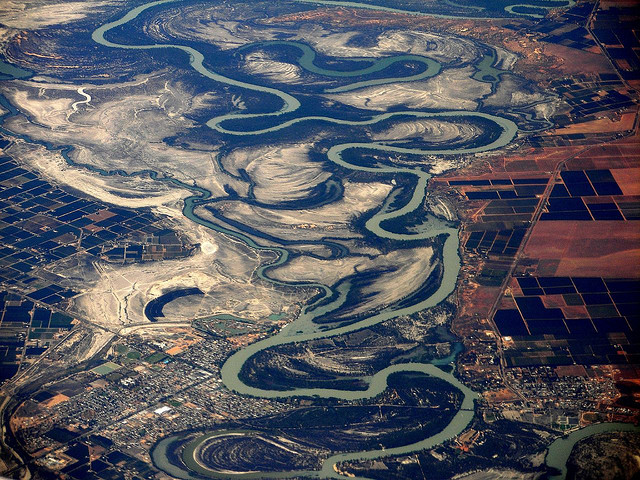

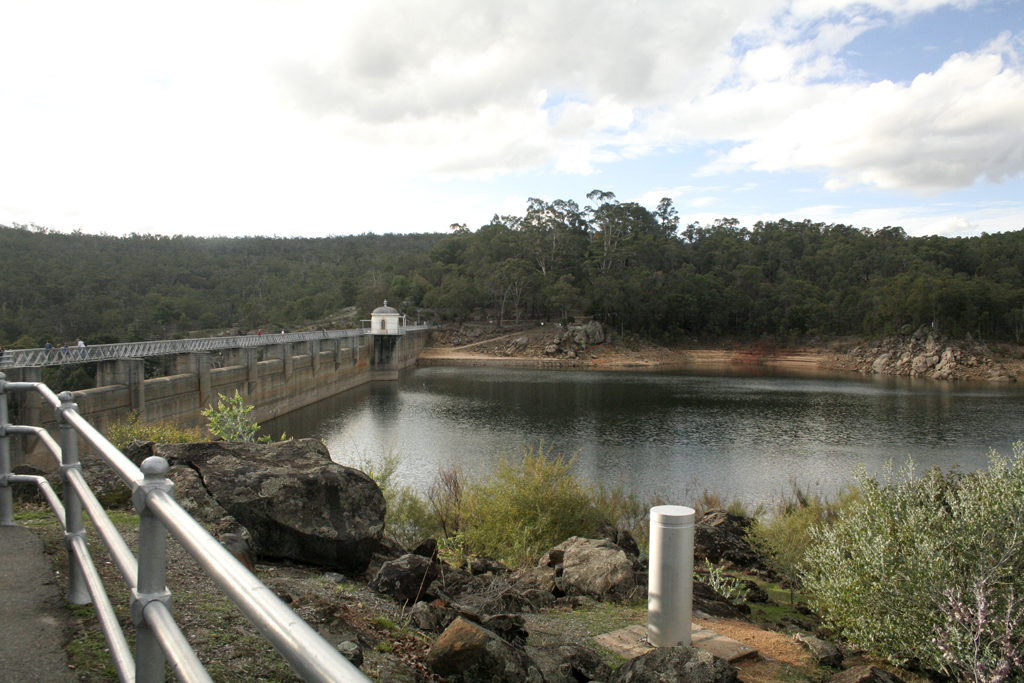
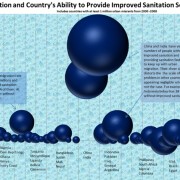
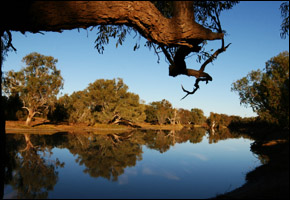
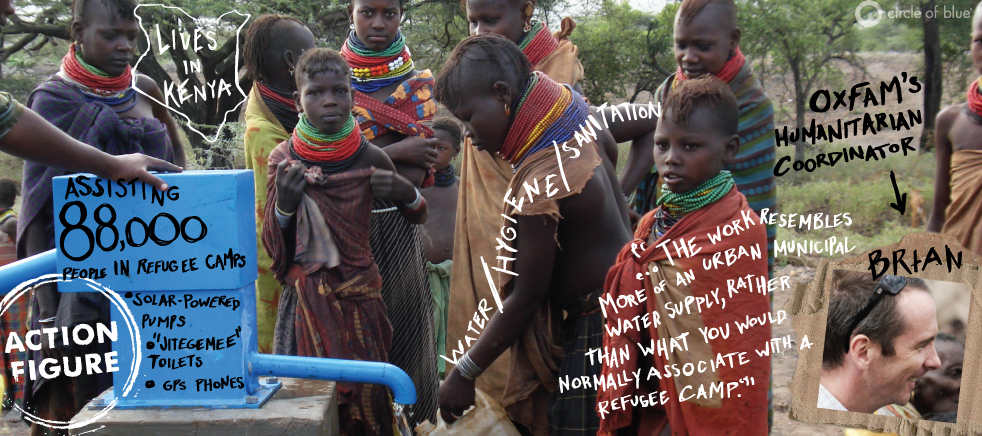


The Abbott government continues to trade the smallest possible gains for the largest possible losses. This penny-wise, pound foolish is set to beat the worst that Bush II did to the US. I am sad for Australians and fearful for their water flows to communities and the environment.